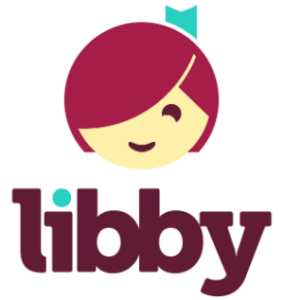
Tips and Tricks on Building Your Library Collection
No matter how many times I step through the doors of a library, I always marvel at the feeling of being surrounded by so many books. The bookshelves encircle me in their warm embrace. I relish the sheer delight of exploring the passageways between shelves, as the flashy covers of books on display lure me further into the labyrinth. Enveloped in endless possibilities, I debate with pleasure which book world I want to get lost in next. Now that I work in a library, I immerse myself in book reviews as much I do books. Selecting new books to order has become one of my favorite roles; I love the delicious challenge of helping build our library collection. Want to learn more about building your school, public, or home library collection? Check out these tips and tricks for how to build your library collection below!
Build Your Library Collection: How to Get Started
Too many books, too little time. One challenge in collection development is the sheer amount of books out there. It can feel overwhelming sometimes ciphering through all of the options. Libraries have budgets to follow and have to review new books with careful consideration before deciding to purchase. Another challenge can arise when librarians choose books based solely off personal preferences. I’d highly suggest reading this Rioter’s thought-provoking deep dive into issues such as these in public library collection development. Fortunately, there are tools librarians can use to help them make thoughtful and informed decisions when building library collections.

Circulation Data
An excellent place to start building your library collection involves analyzing your library circulation data. What are the most popular titles and authors circulating? How about genres? Circulation reports can help indicate the types of books your patrons like best. When I notice books with high circulations, I look for new releases by those authors. If I see a pattern in the genres circulating most often, I stock up on those genres when researching new books. Circulation data provides an invaluable window into what your patrons are most interested in reading at the moment.
Collection Diversity Audit
A crucial piece of collection management is building a diverse and inclusive collection. Running a collection diversity audit can help with this. Assisting with the collection diversity audit at the library I work at has become another one of my favorite projects. In her School Library Journal article, Karen Jensen explains the role of the audit, stating: “In doing a diversity audit of my collection, my goal was to learn what percentage reflected something other than the experiences of straight, white, and non-disabled males, and to fill the gaps.”
A collection diversity audit involves analyzing your library collection to discover the representation present. Some examples of categories to look for include race, gender identity, sexual orientation, religion, disability, socioeconomic status, age, mental and physical health, body acceptance, and location. Another important factor to take note of are the number of #OwnVoices stories, a hashtag coined by Corinne Duyvis. An #OwnVoices book features a protagonist from a marginalized community whose author shares that identity.
By running a collection diversity audit, you can better understand how representative your collection is. You can then use this data to make informed purchase decisions that help the collection grow to include more marginalized identities, especially in areas the collection is lacking.
Patron Feedback
Along with circulation data and our collection diversity audit, I like to keep patron feedback in mind when researching books to purchase. Data can tell you a story about what books your patrons like, but so can your patrons. You can collect patron feedback through surveys, suggest a purchase options, or through your conversations. When patrons tell me how much they loved a book, or ask for recommendations from a certain genre, I remember these conversations when placing orders. Connecting even just one person with a book they’ll enjoy is why I do what I do.

Choosing Books for Your Library Collection
Gathering data can help get you started in building your library collection. How do you find the new books, though? The internet provides a bottomless ocean of options, so I’ve put together a list of resources to help you in your search.
Library and Literary Magazines and Journals
Library and literary magazines and journals provide an excellent selection of book reviews to consider. They offer curated sections of book reviews from professionals in the library and literary world, including reviews of soon-to-be-published books. Some examples of these include: Booklist, Library Journal, School Library Journal, School Library Connection, World Literature Today, Publisher’s Weekly, The Horn Book Magazine, and Bookmarks Magazine.
Bookish Sites
Bookish sites present yet another avenue to find recommended books, as well as themed book lists. Along with Book Riot of course, other examples include Goodreads, The StoryGraph , Kirkus Reviews, Well–Read Black Girl, Lambda Literary, We Need Diverse Books, Rich In Color, Literary Hub, Fantasy Book Review, LoveReading, and Brightly. For more bookish sites, take a look at these sites that we like at Book Riot!
Library And Bookish Newsletters
Despite my email inbox spiraling out of control at times (all the time), library and bookish newsletters are always a treat to read. As a library patron myself, I have signed up for a couple newsletters from my local public libraries. I love seeing what books other librarians recommend, and I often add these recommendations to orders for our own library. For other bookish newsletters, check out the wide selection from Book Riot, as well as Coloring Books, Dear Reader, The New York Times Book Review, Memoir Monday, and Buzzfeed Books. There are so many great bookish newsletters out there, so see if your favorite authors, local library, bookstores, and bookish sites have newsletter options too.
Award Winners
Award winners showcase excellent options of books to help build your library collection. Look out for ones such as the ALA Youth Media Awards, Goodreads Choice Awards, National Book Awards, The Booker Prize, The Nobel Prize in Literature, Pulitzer Prizes, The Women’s Prize in Fiction, Agatha Awards, RITA Award, Edgar Awards, and The Hugo Awards. For more awards, check out Book Riot’s archives of award-winning books.
Subscription Services
Short on time for researching all of the books to add to your collection? Try signing up for a subscription service to get selections of books crafted just right for your library’s needs. Some to consider include Junior Library Guild, Mackin Curator, Book of the Month, Book Riot’s Tailored Book Recommendations, Call Number, and Our Shelves.
Bookish and Library Podcasts
Sometimes the best book recommendations for library collections come by word of mouth. If you’d prefer listening to book recommendations rather than reading them, utilize that time you spend on your morning commute or while doing chores to listen to a bookish podcast. Browse through this list of bookish podcasts in all genres and this one featuring all librarian podcasts. You can find all of Book Riot’s podcasts here.
A Final Note
Despite all of the books to choose from, building your library collection doesn’t have to feel daunting. Using data to drive your decisions can provide a good place to begin. I hope some of the resources listed above will help you dive into collection development with purpose, integrity, and joy.








